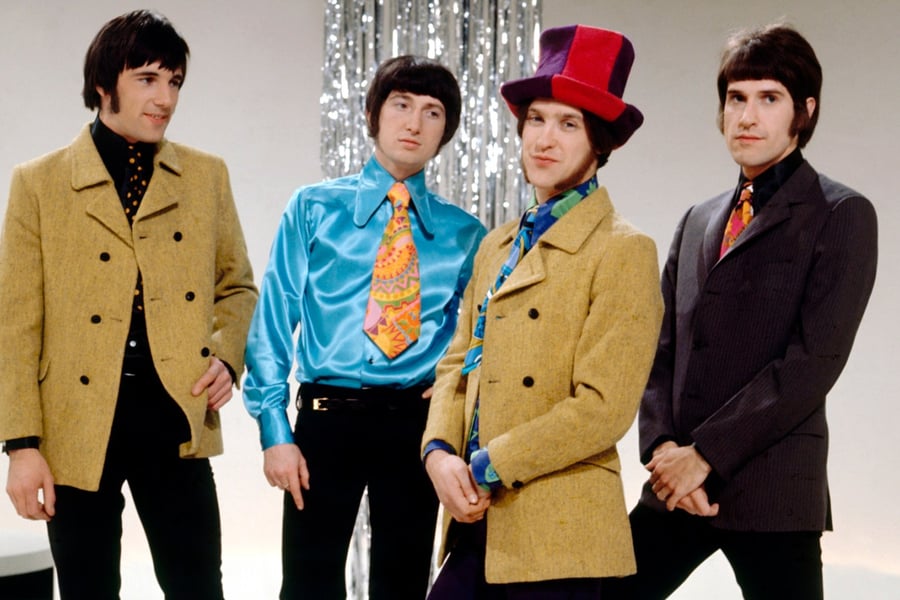The Kinks were heading into uncharted territory in the Sixties. The London rockers blew up in the early days of the British invasion, topping the charts with violently rowdy bangers like “You Really Got Me.” But Ray Davies began to explore a new kind of introspective songwriting, telling stories of everyday heartbreak. “Waterloo Sunset” is his artistic triumph: the delicate 1967 ballad of a lonely man by a train station, watching lovers from his window. This one-time cult favorite has become the Kinks’ most beloved classic, setting a standard that all kinds of songwriters aspire to reach. On Rolling Stone’s list of the 500 Greatest Songs, “Waterloo Sunset” comes it at 14.
The Kinks made their legend in their early years, rivals to the Who, the Beatles, and the Rolling Stones. Ray Davies was one of rock’s great eccentric wits, the poet laureate of London’s dead-end streets, always rooting for the losers and the outsiders. His kid brother, Dave, played some of the nastiest guitar ever heard. The Davies brothers were always at each other’s throats, with a long history of onstage fisticuffs. No rock & roll brothers ever shed more blood over the years — they made Liam and Noel Gallagher look like one big happy family.
But all that rage fed into their music, for the electric aggression of early ravers like “I Need You,” “At the End of the Day,” and “I’m Not Like Everybody Else.” Just 17, Dave changed the sound of rock guitar forever in “You Really Got Me,” jamming knitting needles into his cheap amp to get that feedback explosion.
Ray’s songwriting got more personal, for classic albums like Face to Face and Something Else by the Kinks. He began looking into the secret desperation in the hearts of dandies, party girls, businessmen, and housewives. This approach flowered in the rural escapism of The Village Green Preservation Society. These albums are revered today, as three of the Sixties’ greatest landmarks. But at the time, hardly anyone listened. These were commercial flops that almost killed the band.
“Waterloo Sunset” is a portrait of the least glamorous side of London — the grimy, bustling train station on the Thames River. But Davies makes it the song of a recluse who lives near the station, watching the people pass by, with heavenly backup vocals from his wife Rasa. As he told Rolling Stone, “With a song like ‘Waterloo Sunset,’ I wouldn’t let the band hear the lyrics until I’d done the back track, because the subject matter was quite personal. But fair due to the band. They went with it, and we got good results.”
“Waterloo Sunset” became the climax of the band’s 1967 masterpiece, Something Else by the Kinks, which had gems like “Two Sisters,” “End of the Season,” and “Afternoon Tea.” The song was a U.K. hit, reaching Number Two on the charts, but it couldn’t rescue the album from flopping. In the U.S., the single didn’t even make the charts. Yet it’s the song that came to define Davies’ legend as a one-of-a-kind storyteller. Critic Robert Christgau famously called it “the most beautiful song in the English language.”
On this week’s episode of Rolling Stone’s 500 Greatest Songs, hosts Rob Sheffield and Brittany Spanos discuss “Waterloo Sunset.” They’re joined by their brilliant Rolling Stone colleague Kory Grow to explore the mystery of how such a quiet song has only become more beloved and influential over the years.
Love Music?
Get your daily dose of everything happening in Australian/New Zealand music and globally.
In 2004, Rolling Stone launched its 500 Greatest Songs of All Time list. Tabulated from a massive vote that had artists, industry figures, and critics weighing in, the list has been a source of conversation, inspiration, and controversy for two decades. It’s one of the most popular, influential, and argued-over features the magazine has ever done.
So we set out to make it even bigger, better, and fresher. In 2021, we completely overhauled our 500 Songs list, with a whole new batch of voters from all over the music map. Rolling Stone’s 500 Greatest Songs takes a closer look at the entries on our list. Made in partnership with iHeart, Rolling Stone’s 500 Greatest Songs finds Brittany and Rob discussing a new song each week, delving into its history and impact with the help of a special guest — including fellow RS colleagues, producers, and the artists themselves. It’s our celebration of the greatest songs ever made — and a breakdown of what makes them so great.
Check out the latest episode above, on iHeart, or wherever you get your podcasts, and look for new episodes every Wednesday.
From Rolling Stone US



































